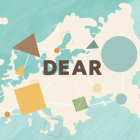Lessons from youth-led "Alarm Cards for Action"
How can we shape the most valuable international solidarity projects that immerse young people into action-oriented international cooperation and foster critical understanding of global issues? Educators, NGOs, large institutions, member-based volunteering and other organisations are “experiencing the growing difficulty of engaging [young people] in their causes.” In the current era of individualized and do-it-yourself (DIY) engagement, how can professionals of international solidarity inspire young people to work with them? What should the role of organisations working with young people be?
To find the answers to these questions and the drivers of youth engagement, this study "Creating Space for Action" analyses a youth-led international solidarity and climate project, “Alarm Cards for Action”. Over seven months in 2022, a total of 35 young people, 15 to 45 years of age, from across the globe met online (bi-) weekly. First they agreed what to do - out of 40 initial ideas. Then they designed their action and produced climate advocacy postcards, including images of flooding in Nigeria and drought in Mali. Their collaboration culminated at the COP27 in Egypt with their postcards about climate-related disasters urging leaders to take action.
The study highlights what professionals could provide and should take into account when working with an international group of young people. The 11 lessons learned include the following:
- Trust and effective communication between facilitators and participants are essential for creating a safe and collaborative environment.
- Collective ownership, shared responsibilities and democratic processes were key to reaching a successful goal / end product. To enable young people to rethink and challenge existing projects, partners need to allow them to develop more open-mindedly, rather than to use “fanciful exercises or methods.”
- The diversity of participants, particularly from the Global South, enriched discussions and helped address power dynamics within the group.
- Visibility and recognition of the young participants and their work is one of their key goals.
- Young people need to be viewed as independent content creators capable of generating social change, rather than mere learners. They are naturally very innovative and able to adapt.
The “experiment” shows that young people are capable of leading projects of international cooperation and becoming “agents of change”. They do however need audiences in the conventional spheres of action and power, and lack the contacts to decision-makers. “Bridging this gap between youth and people in power could present a challenging opportunity,” the study concludes.
This study was commissioned by BeGlobal, the global citizenship education program of Enabel, the Belgian development agency. The research project on youth civic engagement was run in 2022 by Methos.eu, research and innovation agency, in collaboration with Globelink, a Brussel-based youth organization.

Log in with your EU Login account to post or comment on the platform.